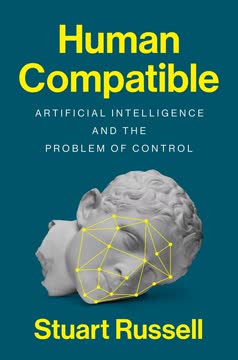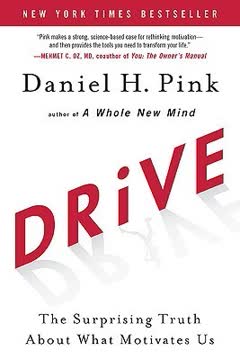Key Takeaways
1. Good work combines excellence and ethics in professional realms
Good work is both excellent in quality and socially responsible.
Excellence meets ethics. Good work occurs when practitioners perform their jobs with high skill and expertise while also upholding ethical standards and social responsibility. This concept applies across various professional domains, from journalism and genetics to law, medicine, and education. Good work requires balancing technical proficiency with moral considerations, ensuring that one's actions benefit both the individual and society at large.
Challenges in modern times. Achieving good work has become increasingly difficult in today's rapidly changing professional landscape. Technological advancements, market pressures, and shifting social expectations create tensions between excellence and ethics. Professionals must navigate these challenges to maintain integrity in their work while adapting to new realities. The authors argue that understanding and promoting good work is essential for the long-term health of professions and society as a whole.
2. Genetics and journalism represent contrasting states of alignment
Genetics emerges at the turn of the millennium as a profession in remarkably good shape.
Genetics: well-aligned. The field of genetics is experiencing a period of relative harmony between practitioners' goals, domain values, field practices, and stakeholder demands. This alignment is driven by:
- Exciting scientific discoveries
- Potential for medical breakthroughs
- Substantial funding and resources
- Public interest and support
Journalism: misaligned. In contrast, journalism faces significant challenges and misalignment:
- Pressure to prioritize profits over quality reporting
- Erosion of traditional journalistic values
- Public distrust and skepticism
- Rapid technological changes disrupting established practices
This stark contrast between the two fields provides insight into the factors that contribute to or hinder good work in professional domains.
3. Rapid technological changes and market forces challenge professional ethics
The profit motive's sway threatens to trivialize other domains as well.
Technology's double-edged sword. Technological advancements have revolutionized many professions, offering new tools and opportunities. However, they also present ethical challenges:
- Increased speed and pressure to produce results quickly
- Blurring of professional boundaries
- New forms of ownership and control of information
- Potential for misuse or unintended consequences
Market pressures. The growing influence of market forces on professional domains has led to:
- Prioritization of profit over traditional professional values
- Concentration of ownership in fewer hands
- Pressure to "dumb down" content or services for mass appeal
- Erosion of professional autonomy
These forces combine to create an environment where maintaining ethical standards and pursuing excellence can be increasingly difficult for individual practitioners.
4. Journalism faces a crisis of integrity and public trust
The standards have been the same since I've been here, pretty much. [They are] always being refined and tinkered with, and different exceptions or new rules regarding this and that get established. But they have very high standards here and they adhere to them pretty well.
Eroding standards. Despite the maintenance of high standards in some news organizations, journalism as a whole faces significant challenges to its integrity:
- Pressure to prioritize entertainment over information
- Blurring of lines between news and opinion
- Decline in investigative reporting
- Increased focus on sensationalism and celebrity culture
Public skepticism. These changes have led to a crisis of public trust in journalism:
- Perception of bias and inaccuracy in reporting
- Belief that news organizations prioritize profits over public service
- Cynicism about the motives of journalists and media owners
To address these issues, journalists and news organizations must find ways to reaffirm their commitment to core values such as truth, fairness, and public service while adapting to new technological and economic realities.
5. Geneticists navigate ethical dilemmas in a fast-evolving field
Once genetic engineering starts in earnest—as it no doubt will—we may well expect a host of troublesome issues to come to the fore.
Ethical frontiers. As genetics advances rapidly, scientists face complex ethical questions:
- Genetic modification of humans and other organisms
- Ownership and patenting of genetic information
- Privacy concerns related to genetic data
- Potential for creating new forms of inequality or discrimination
Balancing progress and caution. Geneticists must navigate these issues while maintaining scientific integrity and pursuing potentially life-saving research. Key challenges include:
- Ensuring responsible use of new technologies
- Communicating complex scientific concepts to the public
- Balancing commercial interests with public good
- Addressing concerns about "playing God" or altering the course of evolution
The field's current alignment may be tested as these ethical dilemmas become more pressing and public scrutiny increases.
6. Personal strategies and institutional reforms can promote good work
To do good work is a laudable goal, one difficult to achieve even under favorable circumstances.
Individual strategies. Professionals can promote good work through:
- Cultivating a strong moral identity and sense of purpose
- Developing expertise and maintaining high standards
- Seeking out mentors and supportive colleagues
- Being willing to take principled stands when necessary
Institutional reforms. Organizations and professional bodies can support good work by:
- Reaffirming core values and ethical standards
- Creating new institutions or expanding existing ones to address emerging challenges
- Reconfiguring membership to promote diversity and fresh perspectives
- Establishing mechanisms for accountability and self-regulation
By combining personal commitment with institutional support, professionals can work to maintain integrity and excellence even in challenging circumstances.
7. Developing a coherent vision is crucial for the future of professional realms
To venture a bold simplification, we could say that American culture has been made up of an uneasy combination of two main ingredients: the religious values that led the Puritans to New England and are replicated in many forms (for example, Mormonism or Islam) and the secular legacy of the Enlightenment that inspired the framers of the Constitution.
Need for shared values. As professional domains face unprecedented challenges, developing a coherent vision for the future is essential. This vision should:
- Reconcile traditional values with new realities
- Address the ethical implications of technological advancements
- Balance individual autonomy with social responsibility
- Provide guidance for navigating complex ethical dilemmas
Fostering dialogue. Creating this vision requires:
- Engaging diverse stakeholders in ongoing conversations
- Examining the historical foundations of professional ethics
- Considering the long-term consequences of current trends
- Cultivating leadership that can articulate and champion ethical values
By developing a shared understanding of what constitutes good work in the 21st century, professionals can work together to shape the future of their domains in ways that benefit both individuals and society as a whole.
Last updated:
Review Summary
Good Work receives mixed reviews, with an average rating of 3.74 out of 5. Some readers find it thought-provoking and insightful, particularly regarding ethics in genetics and journalism. Others criticize it as outdated, biased, and overly long. The book explores the concept of "good work" - excellent and socially responsible - in rapidly changing fields. While some appreciate its ideas on professional ethics, others find it boring and lacking actionable insights. Several reviewers suggest reading only specific chapters or sections for the most valuable content.
Similar Books










Download PDF
Download EPUB
.epub digital book format is ideal for reading ebooks on phones, tablets, and e-readers.










